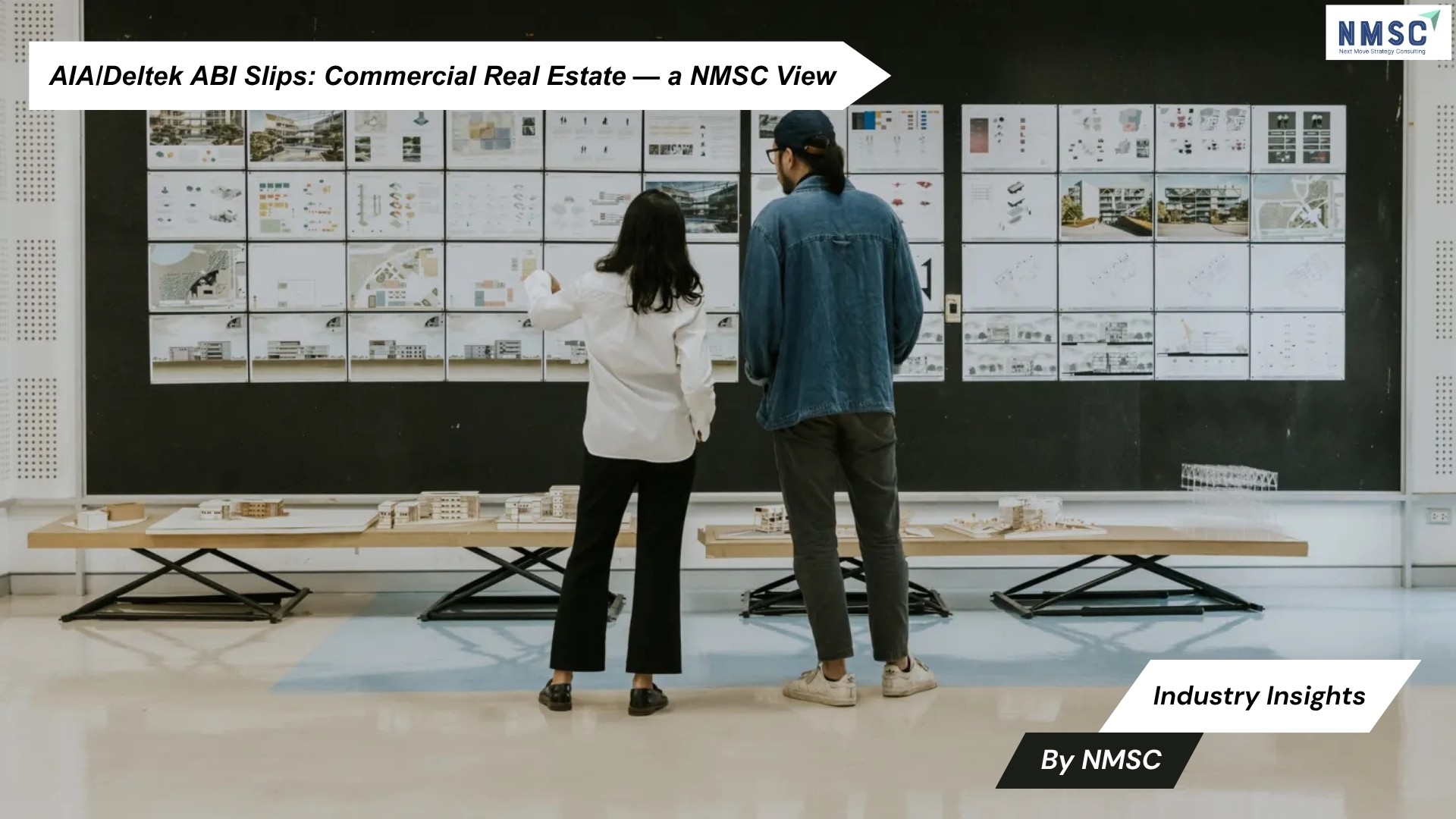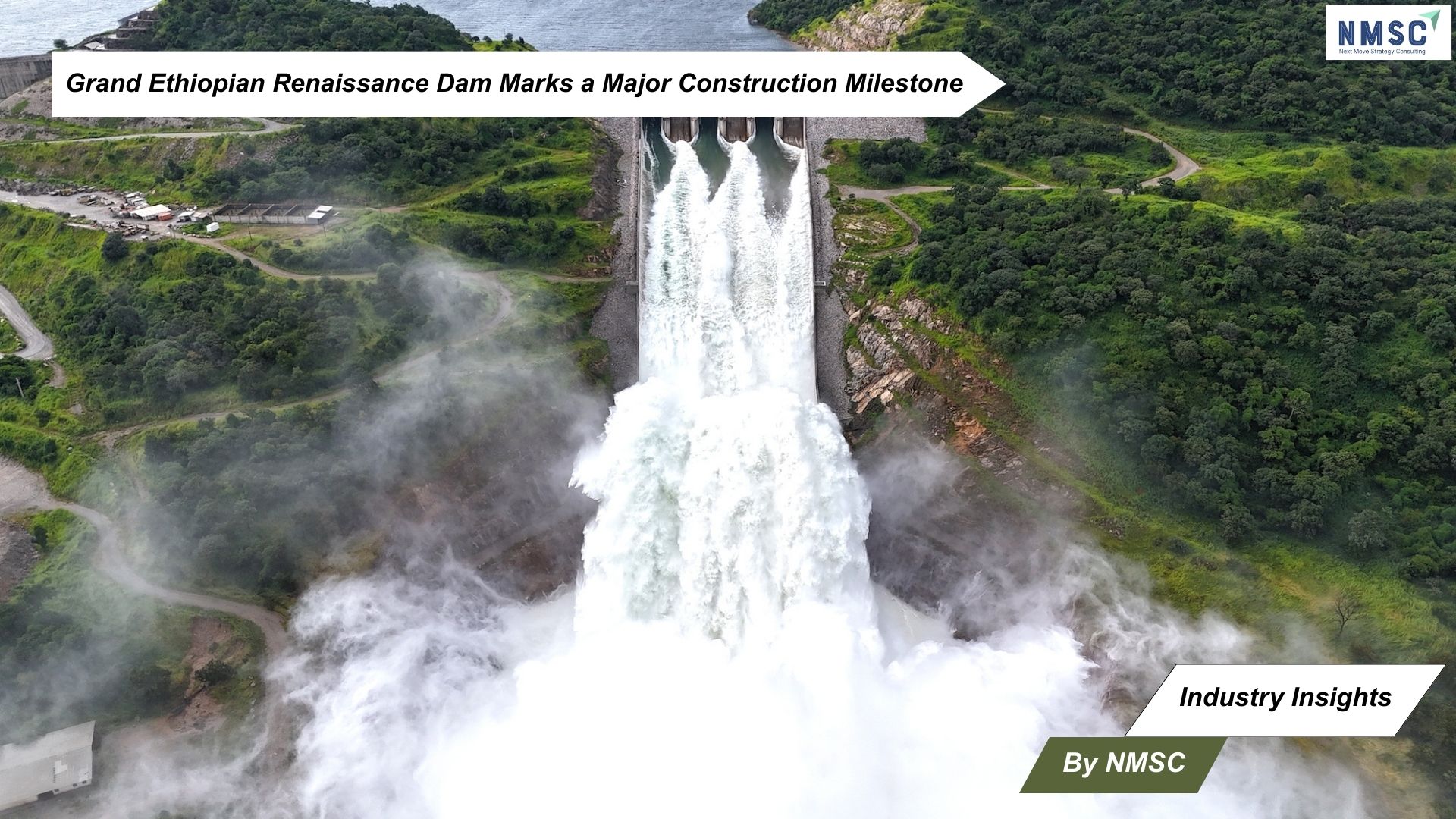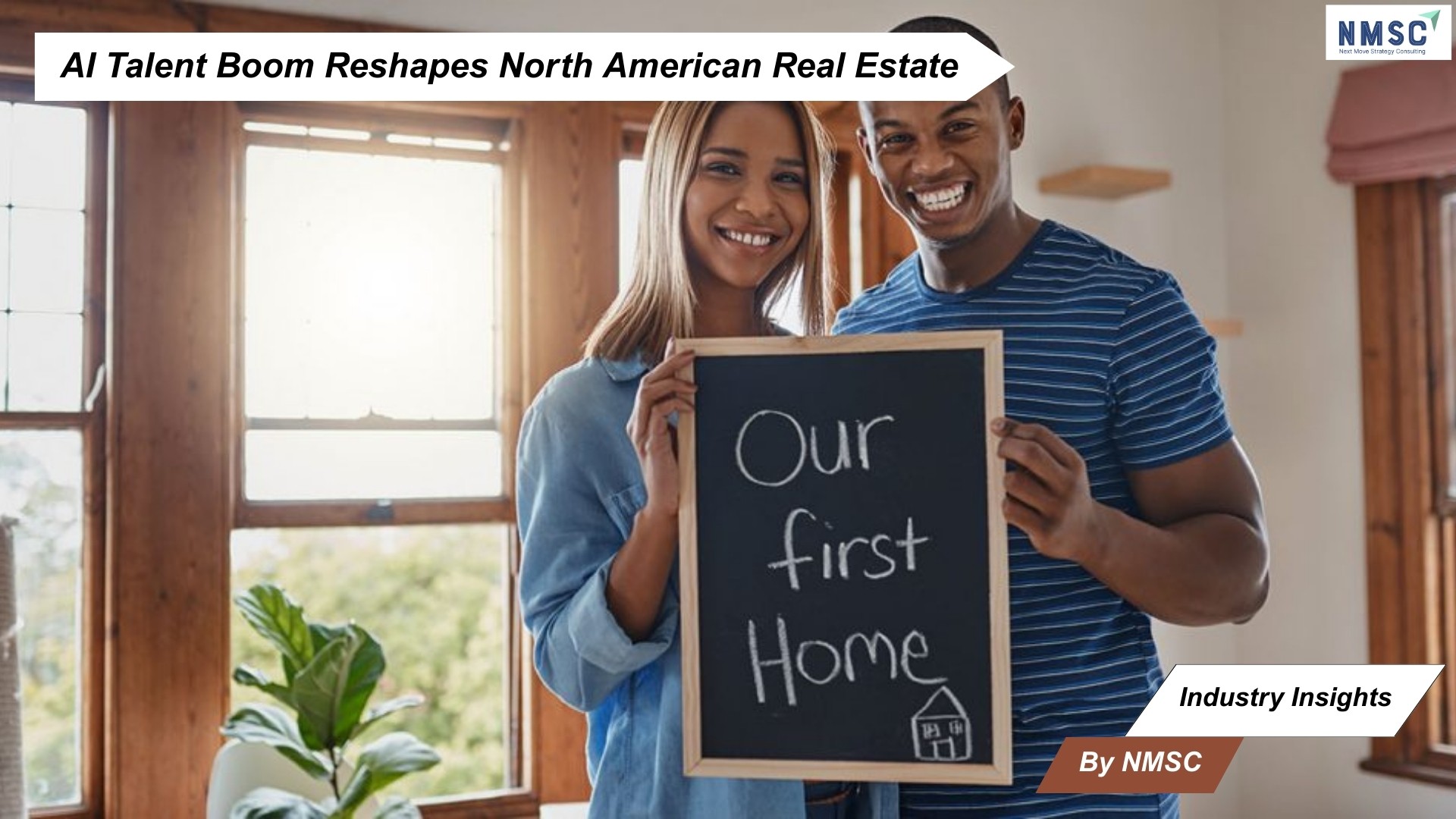AIA/Deltek ABI Slips: Commercial Real Estate — a NMSC View
Published: 2025-08-02

Industry Insights from Next Move Strategy Consulting
As commercial real estate development encounters growing headwinds from economic uncertainty and shifting tariff policies, architecture firms report an ongoing decline in billings. June’s AIA/Deltek Architecture Billings Index (ABI) registered 46.8—down from 47.2 in May—marking the eighth consecutive month below the 50-point breakeven that separates growth from contraction.
A Nationwide Soft Patch, with Southern Resilience
“Business conditions were soft nationwide in June, with a slight billing increase in the South for the first time since October,” said Kermit Baker, Chief Economist at the American Institute of Architects. One bright spot was inquiries into new projects, which increased for the second consecutive month and grew at the strongest pace since last fall with a score of 53.6. This suggests that clients are starting to send out requests for proposals and will start working with architecture firms on potential projects.
Key Market Indicators at a Glance:
-
ABI Reading: 46.8 in June (down from 47.2 in May)
-
Contraction Threshold: Any score below 50 signals shrinking billings
-
New Project Inquiries: Rose to 53.6, the strongest pace since last fall
-
Design Contract Values: Fell for the 16th straight month
Bright Spot in Project Inquiries
Despite lingering softness in billings, demand signals are emerging. Inquiries into new projects climbed for a second month, reaching 53.6—the highest level of inquiry activity since last autumn. This uptick suggests that owners are beginning to solicit proposals, laying groundwork for potential design contracts, though AIA cautions that inquiry growth does not yet guarantee signed projects.
Midyear Spending Forecast: Modest Gains Ahead
In its midyear outlook, AIA forecasts that non-residential construction spending will edge up just 1.7% in 2025 and 2.0% in 2026 (not adjusted for inflation). Manufacturing facility construction—which had buoyed recent growth—is expected to decline by 2.0% in 2025 and another 2.6% in 2026. Institutional facilities remain the standout sector, with projected spending increases of 6.1% in 2025 and 3.8% in 2026.
Navigating Policy-Driven Uncertainty
The architecture, engineering, and construction industries face mounting questions about future input costs and availability amid evolving tariff rates. “Not knowing what products will cost in the future, whether they will be available, and how these changes might affect supply chains—or provoke trade tensions—are all questions the AEC industry is asking before moving forward,” notes the AIA report.
Source: CNBC
Prepared by: Next Move Strategy Consulting
















Add Comment